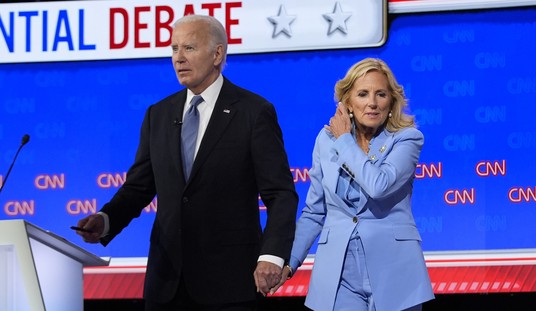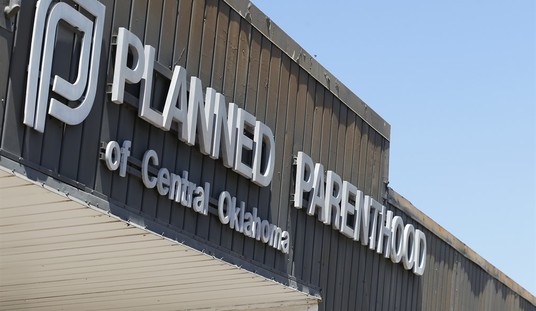Largely lost amidst the hullabaloo of Republican gubernatorial victories in New Jersey and Virginia and a Conservative Party defeat in New York’s 23rd congressional district was a successful citizens’ veto in Maine of a state statute recognizing gay marriage. At the same time, citizens in Washington State approved a statute making “the rights, responsibilities, and obligations of same-sex and senior domestic partners” the equivalent to those of married spouses, without calling the relationships marriage. The margins were nearly identical. In the Pine Tree State, 52.8% of voters approved Question 1, rejecting state recognition of same-sex marriage. In the Evergreen State, 52.56% voted to approve domestic partnerships.
This split decision, if you will, could have tremendous reverberations in the current debate on gay marriage, particularly as it relates to the strategies gay activists employ to secure state recognition of and legal benefits to same-sex couples. With Maine voters’ approval of Question 1, the Pine Tree State becomes the 31st state to either reject same-sex marriage or accept the traditional definition of marriage by popular initiative. No state has recognized same-sex marriage at the ballot box.
By contrast, Washington State became the first state to approve state recognition of same-sex domestic partnerships at the ballot box.* It’s only been ten years since California became the first state to recognize same-sex relationships when the state legislature enacted the Domestic Partnership Act of 1999. While some state courts (e.g., Vermont that year and New Jersey in 2003) mandated the state legislature enact legislation recognizing civil unions, until last Tuesday voters, via a statewide initiative process, had never previously approved such legislation.
If we were living in a normal world, this would be heralded as a landmark election and a sign of how quickly attitudes toward gay people have changed in the United States. But so beholden have gay activists become to their notion of “marriage equality” that they have lost sight of how far we have come in such a short time. They lash out at Maine voters without thinking that ten years ago it would have been all but inconceivable that 47% of the people in any state would vote in favor of state recognition of same-sex marriage.
And while a solid majority of Americans still disapprove of gay marriage, our views on civil unions have changed markedly, particularly in the past decade. According to an October Pew Research Center poll, 57% of Americans favor civil unions, the same percentage which, Gallup found, opposes same-sex marriage. The number becomes even more striking in historical context. Just six years ago, a slight plurality (47%) opposed same-sex civil unions, while 45% supported them.
Interestingly, while the Pew poll shows an increase in support of civil unions in six years, Gallup shows that opposition to same-sex marriage has pretty much remained constant over the same timeframe.
One could almost say that the “split decision” rendered last week by voters in Maine and Washington State reflects the emerging consensus in the nation as a whole, a readiness to recognize the reality of same-sex couples, but a reluctance to call such unions marriages.
This suggests that gay activists should shift their strategy, pushing for recognition of civil unions in the political realm while in their private conclaves considering the seemingly intractable opposition to same-sex marriage. In the wake of the passage last fall of Proposition 8 in California, activists held numerous meetings across the Golden State — including a much-ballyhooed “Equality Summit” in Los Angeles — which appeared on the surface to do just that. But as participants pondered the meaning of that successful state initiative to enshrine the traditional definition of marriage in the state constitution, activists and leaders of the various gay organizations remained focused on their goal of “marriage equality.”
Most seemed reluctant to consider what supporters of the successful ballot initiative understood by the word “marriage.”
Indeed, despite much handwringing and many meetings, there has been little change in the gay leadership. With the notable exception of Patrick Sammon, former president of Log Cabin Republicans, not a single national gay leader has stepped down since Proposition 8 passed. (And Sammon resigned for personal reasons unrelated to the election results.) Even local leaders in California kept their jobs. Geoff Kors remains at the helm of Equality California despite growing criticism of his leadership from gay people across the Golden State’s political spectrum.
Gay leaders have shifted their tactics a bit, but their overall strategy and rhetoric have remained the same. It thus seems doubtful that last week’s elections will lead to the changes expected after the success last fall of Proposition 8.
The Maine results should be sobering for those who believe state recognition of gay marriage is the immediate be-all and end-all of the gay movement. Citizens there did not just rise up against a state court removing the matter from the legislature. Advocates of Proposition 8 reminded Golden State voters last fall that four unelected judges overturned the will of four million citizens. By contrast, Maine voters vetoed a law passed by their own elected legislators.
Their opposition is not just to activist judges, but to using the term “marriage” to describe same-sex relationships.
But the results in Washington State, which is politically similar to the Pine Tree State (both states delivered 57% of their votes to Barack Obama last fall), should be heartening to those who want to see governments recognize the changing social attitudes toward gay people. Americans are increasingly willing to acknowledge same-sex unions, even if they refuse to call such unions “marriage.”
The debate, it now seems, is about the meaning of a word. And the task for gay marriage advocates is to figure out why many Americans, even those harboring no animus against gay people, continue to define that word, marriage, by sexual difference.
At the same time, while it appears highly unlikely that voters will approve state recognition of same-sex marriages in the near future, there is growing evidence that they do support state recognition of civil unions. That may not be the result some gay activists wish to see, but it is a mark of progress and positive social change. And something that would hardly have been possible or even conceivable just ten years ago.
*In 2006, Arizona became “the first state in the Union to reject a ballot initiative aimed at preventing gay marriage” when they narrowly rejected Proposition 107. That measure was considered both too draconian and too complex, as it would have barred jurisdiction in the Grand Canyon State from granting legal status to domestic partnerships. So, while voters rejected a complete ban on rejection of domestic partnerships, they did not vote to sanction state recognition of such unions as did Washington State voters last week. In 2008, Arizona voters approved Proposition 102, which would amended the state constitution to define marriage as the union of one man and one woman.








Join the conversation as a VIP Member